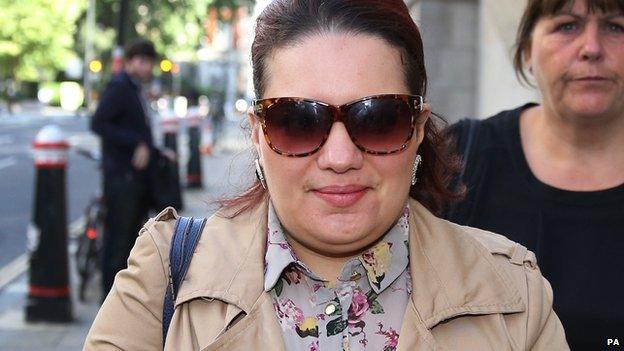Aine Davis: The gangster who ditched drugs for jihad
- Published
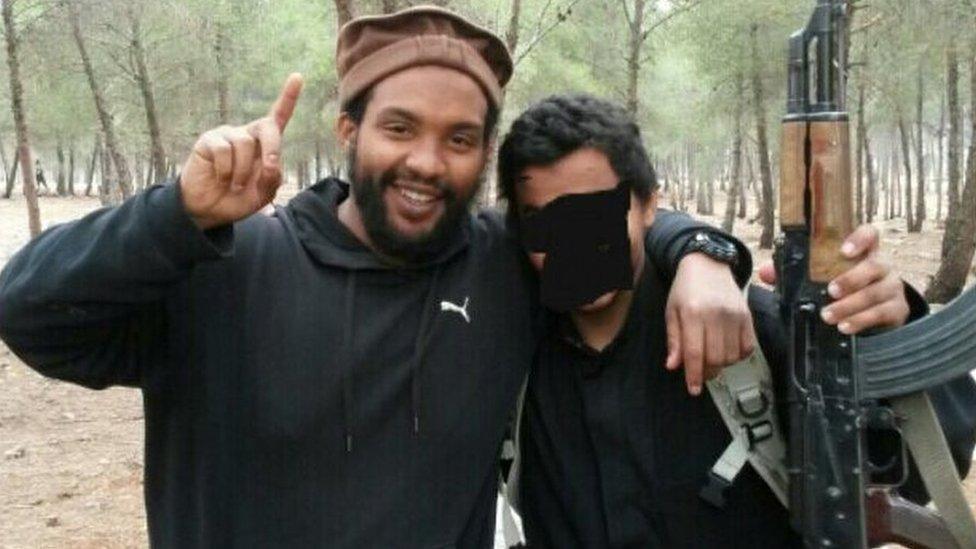
Aine Davis converted to Islam in a doomed attempt to put the chaos of his life behind him
Convicted of being a senior member of the self-styled Islamic State group, Aine Davis is part of a worryingly familiar trend: the petty criminal who embraced violent jihad.
On the streets of west London he sold drugs and carried a gun.
And on the same streets he converted to Islam, in a doomed attempt to put the chaos of his life behind him.
But in the twisted version of Islam he embraced he kept faith in the gun.
His early adult years in Hammersmith saw a string of drugs convictions.
Then in 2006, Davis was jailed for possessing a firearm after a police operation smashed a gang that supplied hundreds of weapons to the criminal underworld.
Around this time Davis became a Muslim, took the Islamic name Hamza, and travelled across the Middle East. But trouble was never far behind.
According to his wife, Amal El-Wahabi, he could not escape the influence of friends from the drug scene.
We know this because El-Wahabi testified in her own trial in 2014, when she was convicted of funding her husband's terrorism.
She was jailed for 28 months after tricking a friend into trying to smuggle thousands of euros to Davis, who went to Turkey in 2013.
She told the Old Bailey that she had ignored her parents' concerns about Davis, whom she met at a west London mosque.
It was at the mosque that Davis encountered another person whose life would become defined by extremism.
That man was Mohammed Emwazi, who gained global notoriety as "Jihadi John", the masked man who carried out a series of grotesque beheadings of Western hostages.
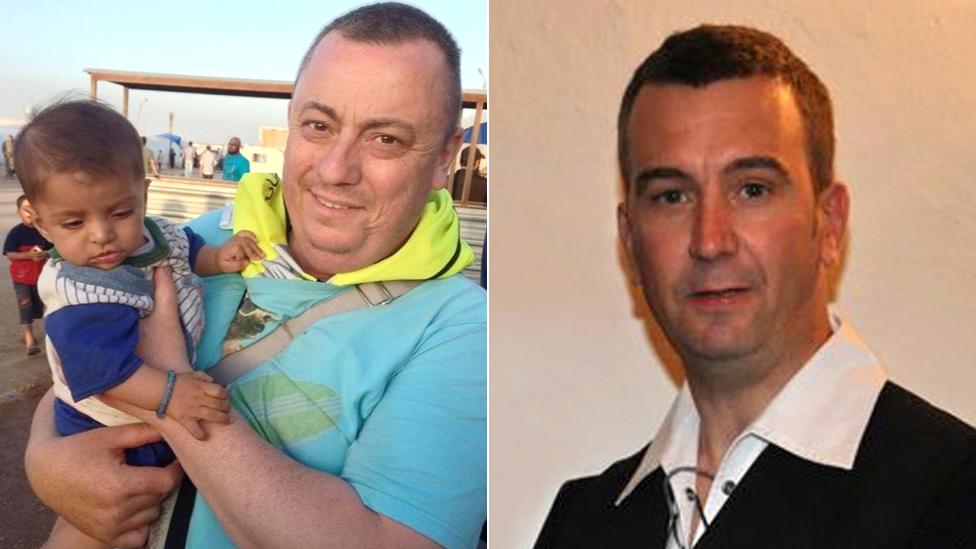
Britons Alan Henning (left) and David Haines were among the hostages killed by the IS cell nicknamed "The Beatles"
Davis and Emwazi were part of a group of radicalised Muslims living in the capital.
From 2012 they seized the chance to fight jihad in the vortex of violence that was engulfing Syria and Iraq.
Once there, Davis and Emwazi wound up as trusted members of so-called Islamic State.
With two other friends from home, Alexanda Kotey and El Shafee Elsheikh, they were allegedly put in charge of guarding hostages, who dubbed them "The Beatles" because of their English accents.
Davis denied being a member of the group, insisting in court that stories of his involvement were false.
He said he was not the head of that unit, adding: "I am not ISIS. I went to Syria because there was oppression in my country."
'Profound hatred'
One of the hostages who survived has described how, in basement rooms in a large house in northern Aleppo, the group of friends from London inflicted appalling acts of violence on their captives, who included journalists and aid workers.
Detained for about six months, Spanish journalist Javier Espinosa was put in an orange jumpsuit, called Prisoner 43 and held in conditions designed as IS's version of the controversial US detention facility at Guantanamo Bay.
What followed was a vision of hell: mock executions, waterboarding, and widespread torture.
Speaking to the BBC, Mr Espinosa likened "The Beatles" to "a group of thugs with no knowledge of what is religion at all".
They used their faith "to try to justify all type of common crimes that they were committing".
"I mean if they were raping, they called it marriage. If they were stealing things they called it confiscation."
He said the guard they called George would often say: "You don't know how I hate you," referring to people in the West.
"He really had this deep and profound hatred of the Western world," Mr Espionza said.
Six of the 27 hostages held by "The Beatles" were killed by beheading, including Britons Alan Henning and David Haines, in an orgy of choreographed violence designed to shock the world.
The group known as "The Beatles" beheaded IS hostages

Who are the other "Beatles"?
Mohammed Emwazi
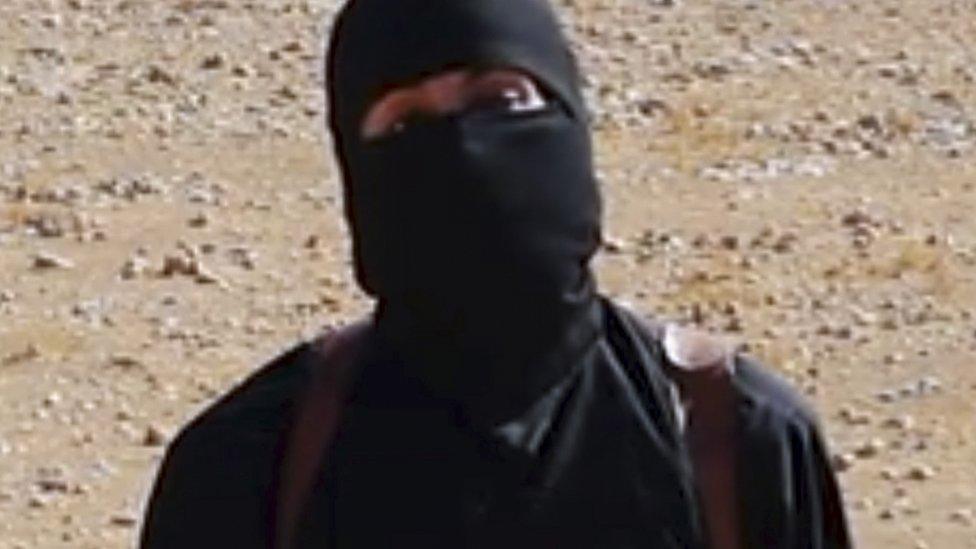
"Jihadi John" - whose real name was Mohammed Emwazi - regularly featured in IS propaganda
Mohammed Emwazi, aka "Jihadi John", appeared in a number of IS videos in which hostages were beheaded.
In November 2015, days after the arrest of Aine Davis, he was killed in a US drone strike.
The then Prime Minister David Cameron said the UK and US had worked around the clock to track down the "barbaric murderer [who] posed an ongoing and serious threat".
Alexanda Kotey
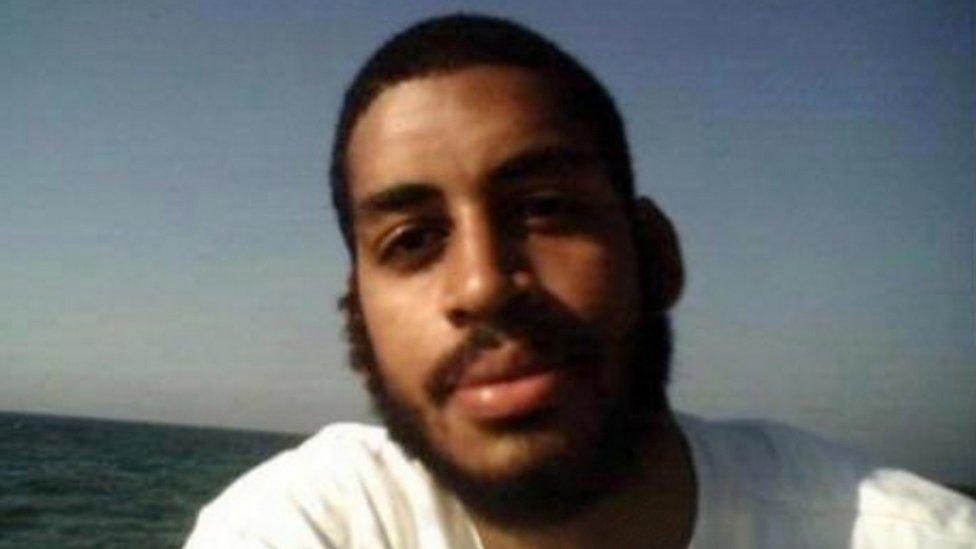
The US State Department said Alexanda Kotey recruited several UK nationals to join IS
Alexanda Kotey was identified as one of the kidnap gang by the US State Department, which claimed that "Kotey likely engaged in the group's executions and exceptionally cruel torture methods, including electronic shock and waterboarding".
It also stated that he was an IS recruiter "responsible for recruiting several UK nationals to join the terrorist organisation".
It is understood that the 33-year-old is still in Syria, in IS territory.
El Shafee Elsheikh
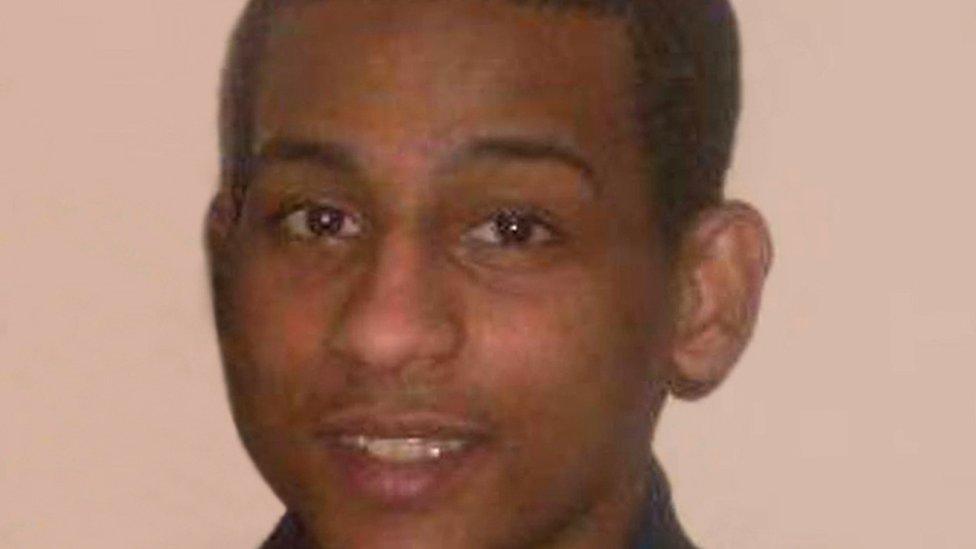
El Shafee Elsheikh is said by the US State Department to have earned a reputation for waterboarding, mock executions, and crucifixions"
El Shafee Elsheikh, the son of Sudanese refugees to the UK, went to Syria in 2012 - it is understood that he is still there, in IS territory.
The US State Department said he "earned a reputation for waterboarding, mock executions, and crucifixions".
His father, Rashid Elsheikh, told the BBC he had seen no evidence that his son was one of "The Beatles".
He added: " I would like to repeat my condemnation of violence against any human being whatever the reason.
"My son and anybody else is responsible and accountable for his acts."

In November 2015, Aine Davis was being monitored as he slipped across the border from Syria to attend a meeting in Istanbul.
Police followed him to a complex of luxury villas by the coast in the town of Silivri.
He was arrested along with a group of other men, including three Britons.
Deniz Solak, 33, from east London, Jermaine Burke, 29, from High Wycombe and Mohammed Karwani, 40, from London all denied being members of Islamic State.
Mr Solak was acquitted by the court in Silivri.
The cases were recently dropped against Mr Karwani and Mr Burke and both will now be deported to the UK.
Speaking to BBC News, Mr Karwani's father, Sayed Jan, said: "There is no terrorism in my family."
He said his son "good relationships with people. We are against Daesh [so-called Islamic State]."
He said his son went to work in Turkey as a teacher and added that he had another son who had been injured in a bomb explosion in Afghanistan while working as a translator for the US Army.
No evidence was produced to show the four Britons had been planning a terror attack in Turkey, as was suggested in some press reports after their arrest.
But the court heard Davis was a senior figure in the ranks of IS - and the judge agreed.
He was found guilty of being a senior member of a terrorist organisation and jailed for seven-and-a-half years.
The London street criminal turned international terrorist is back behind bars.
- Published9 May 2017
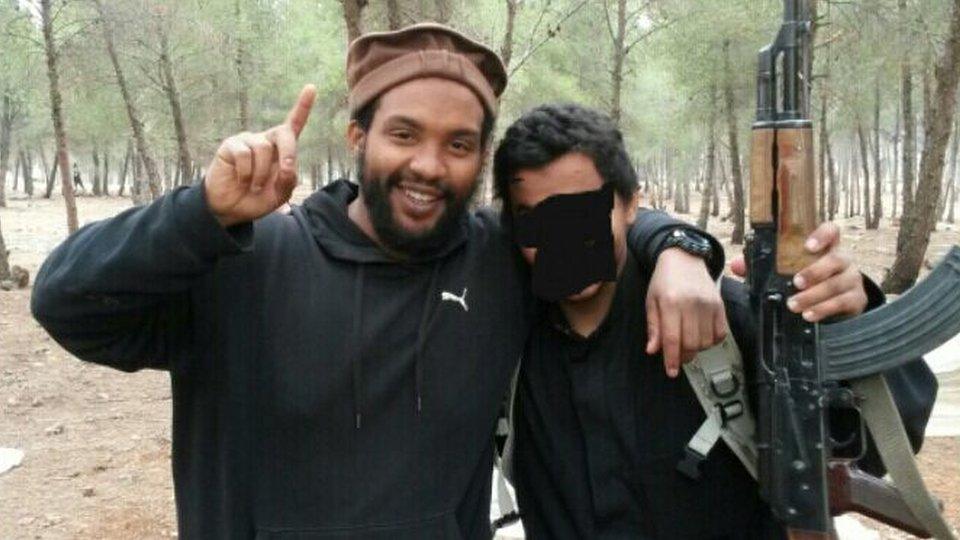
- Published13 November 2014
